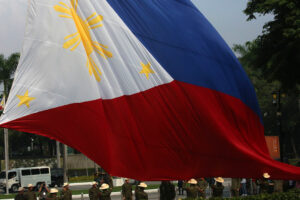By Justine Irish D. Tabile, Reporter
THE PHILIPPINES is hoping to be included among the top 20% of the countries assessed by the World Bank for its Business Ready (B-READY) report by 2026, the Anti-Red Tape Authority (ARTA) said.
“We should always aim for the top. We shouldn’t just be in the top 40%, but 20%… For 2026 that is our aim,” said ARTA Director-General Ernesto V. Perez on the sidelines of the Ease of Doing Business Convention on Monday.
The B-READY report assesses the business and investment climate by considering three pillars: regulatory framework, public services, and operation efficiency.
In the inaugural World Bank B-READY report released earlier this month, the Philippines ranked 16th out of 50 economies in the regulatory framework with 70.68 points. This made the Philippines among the top 40% of economies in terms of regulatory framework.
“By 2028, our target really is to improve our economy, and as we all know, the survey results have a direct bearing on our foreign direct investments. Investors look at the country’s performance in the ranking when they decide to invest in the country,” Mr. Perez said.
He said the surveys today are no longer just focused on Quezon City but across the country, which makes them very technical.
“This is why ARTA is really focused on this. We are really studying how we can really improve our ranking,” he added.
However, the B-READY report showed the Philippines ranked 24th in public services and 36th in operational efficiency.
“Hopefully, in the next survey result, which is going to be two years from now, as we are not going to participate in this coming survey period,” he said.
The World Bank’s next B-READY report is scheduled to be released in 2026.
“We will not stop. Having been designated by the President as the focal point for the B-READY report, we are going to form technical working groups (TWG) to address the 10 priority areas,” Mr. Perez said.
The TWG will include representatives from the Securities and Exchange Commission, Philippine Health Insurance Corp., Home Development Mutual Fund (Pag-IBIG), Social Security System, Bureau of Internal Revenue, and the Department of Trade and Industry, among others.
“The laws and regulations are already there and only need to be implemented, and the best way to implement them is to gather all the agencies involved and the support of the private sector,” Mr. Perez said.
Next month, ARTA will conduct a public sector consultation on the formulation of reform guidebook that will serve as the agency’s roadmap in making the Philippines more business ready.
Aside from the public consultation, ARTA will also conduct meetings with different agencies involved until December. It targets to finalize the reform guidebook by June 2025.
ARTA will be focusing on the improvement of regulatory framework, public services, and operational efficiency from 2024 to 2026, while digital transformation is set to be a continued focus until 2028.
Under the Ease of Doing Business Act, local government units (LGUs) are required to implement an electronic business one-stop shop to expedite processing of all business permits.
“Currently, 112 LGUs have complied with this requirement… and as records show, those first 10 LGUs that have been able to set up one have experienced substantial increases in their number of business registrations and revenue collections,” said Mr. Perez.
“This is the best evidence that when we streamline and digitalize government processes, we can be effective in our fight against red tape and corruption in the process,” he added.
Meanwhile, World Bank Group Lead Economist and Program Leader for Brunei, Malaysia and Philippines Prosperity Gonzalo Varela said that the framework of the B-READY report follows the life cycle of a firm. This covers business entry, business location, utility services, labor, financial services, international trade, taxation, dispute resolution, market competition, and business insolvency.
“If we look by area, business entry is a crucial one because, in a way, regulations or poor implementation of regulations that prevent business entry are barriers to competition or barriers to having a more dynamic business environment,” said Mr. Varela.
The Philippines scored 48 points in business entry, landing at the bottom 20% economies for this area.
“It’s in operational efficiency and public services where the efforts probably should be placed,” he said.
The Philippines scored 43 points out of 100 on public services and 14 points on operational efficiency.
Mr. Varela also said key areas for improvement include business location, market competition and business insolvency.
However, Guillermo M. Luz, chairman of the Asian Institute of Management – Rizalino S. Navarro Policy Center for Competitiveness Advisory Council, said that the country’s overall goal “should go beyond a higher competitiveness ranking.”
“Our ultimate goal has to be increased investments, economic growth and greater inclusive growth where we see significant drops in poverty incidence and corresponding growth of our middle class,” he said in a keynote message.
“It is only growing our middle class that we can hope to build sustainability, socially, politically and economically, from which to create genuine economic development,” he added.
